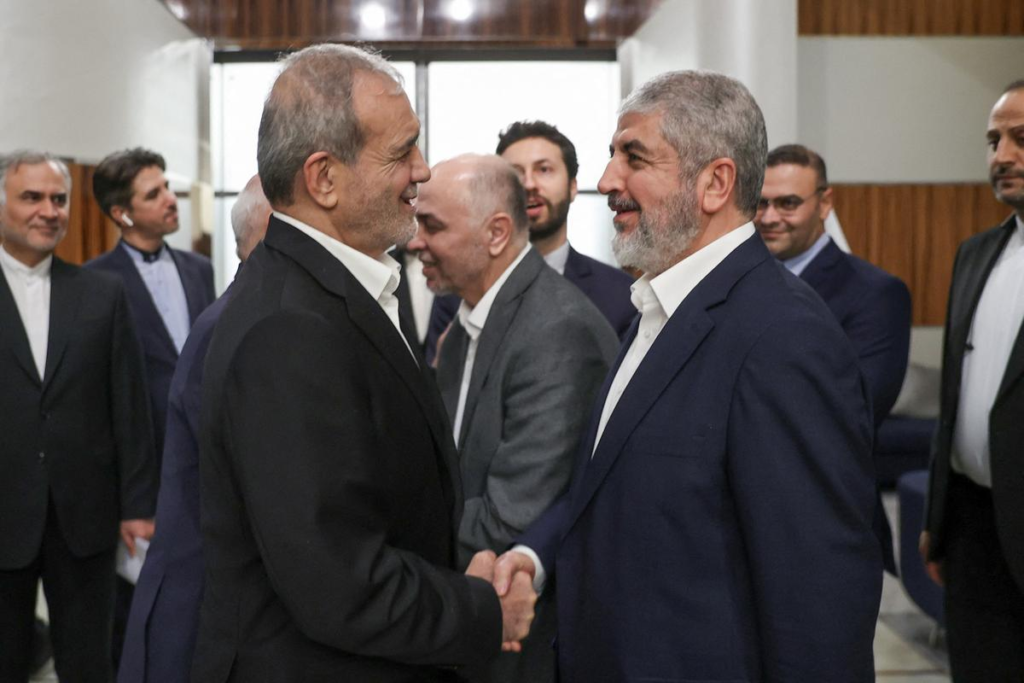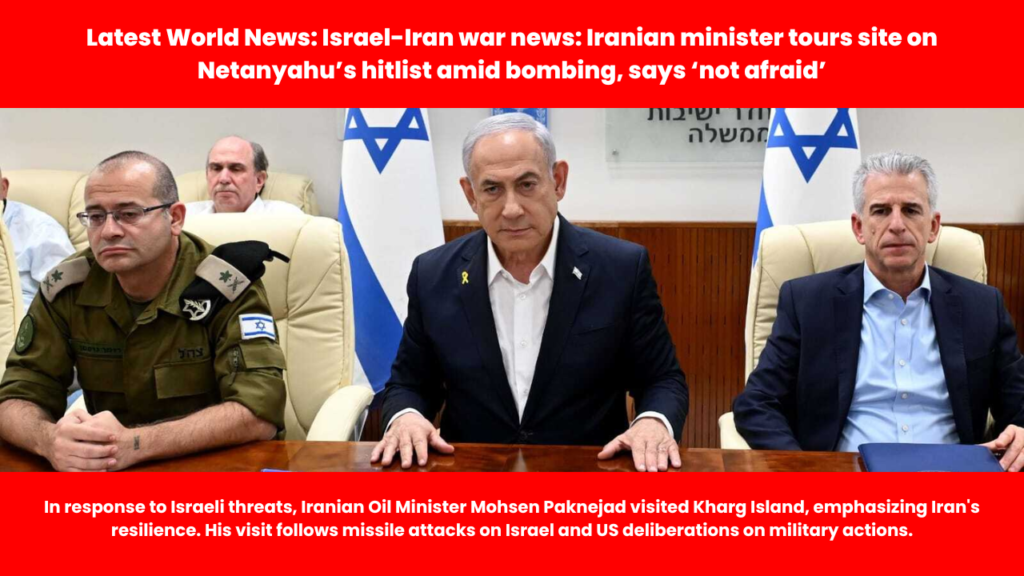As the concerns of potential Israeli air strikes at energy facilities in Iran looms, Iranian Oil Minister Mohsen Paknejad on Sunday visited Kharg Island, the main export terminal of the country and touted that they are “not afraid”. During the visit, Paknejad reportedly held talks with the naval commander of Islamic Revolutionary Guard Corps, Mohammad Hossein Bargahi.

The minister’s visit comes after an Israeli military spokesman said the country was “preparing a response” after Iran launched a barrage of missiles at Israel this week.
As many as 200 missiles were fired to avenge the death of Hezbollah leader Hassan Nasrallah and Iranian general Abbas Nilforoushan in a September 27 strike on Beirut.
According to Iran oil ministry’s news website, SHANA, Paknejad arrived at the Kharg Island oil facilities in the morning and met with employees.

“We are not afraid that our enemies will ignite a crisis, and visiting the region is a normal business trip,” Paknejad said on state television. He shared that the Kharg Island oil terminal has a capacity to store 23 million barrels of crude.
The oil minister also hailed the Guards for “continuous efforts in maintaining the security” of Iranian oil platforms in the Gulf.
Mohsen Paknejad’s visit follows Israel’s announcement that it was preparing a response to Iran’s missile attack on Tuesday on its territory.

On Thursday, US President Joe Biden said he was “in discussions” with Israel about possible strikes on oil facilities in Iran.
Following the statement, oil prices had surged.
But on Friday, Biden advised Israel against striking Iran’s oil facilities, telling it to find “other alternatives”.

Iran is a member of the Organization of the Petroleum Exporting Countries (OPEC) with production of around 3.2 million barrels per day (bpd), or 3% of global output.
Despite US sanctions, Iranian oil exports have climbed this year to near multi-year highs of 1.7 million bpd. China, which does not recognise US sanctions, is Tehran’s biggest oil customer and according to analysts imported 1.2 to 1.4 million barrels per day from Iran in the first half of 2024.

Following the Israeli threats, Iranian Foreign Minister Abbas Araghchi on Saturday warned of “a proportional and similar reaction from Iran, and even stronger” should Israel strike Iran.


